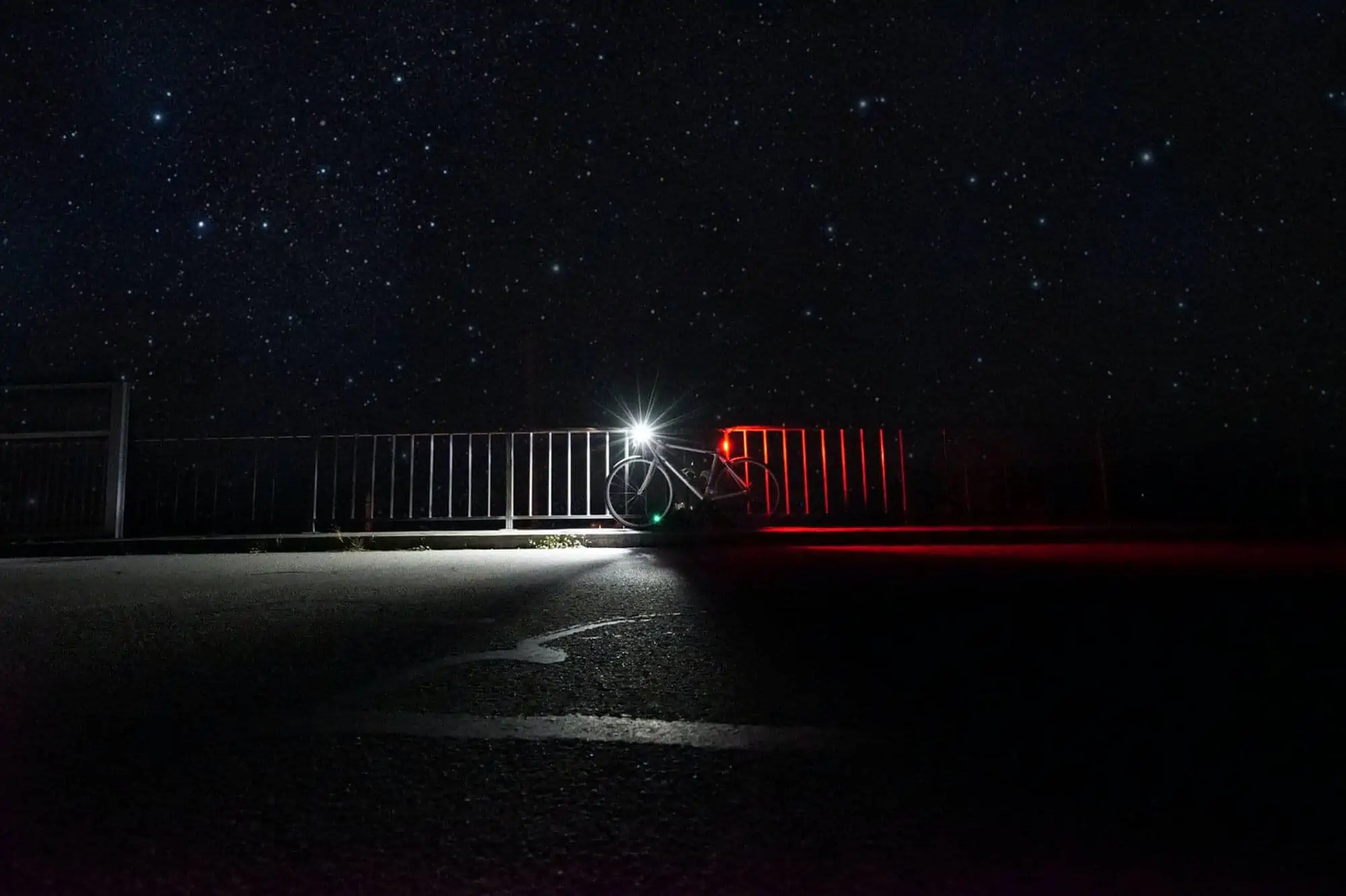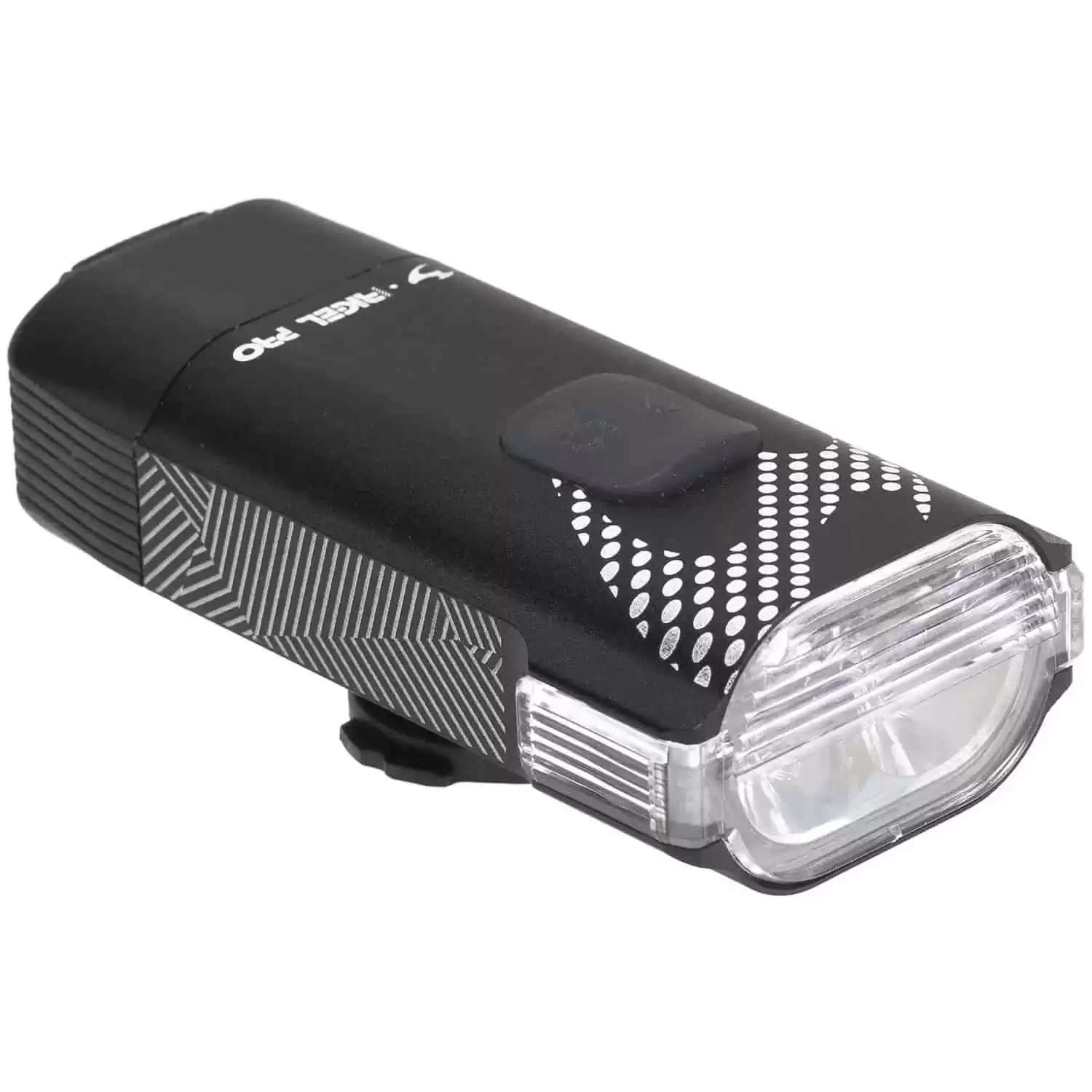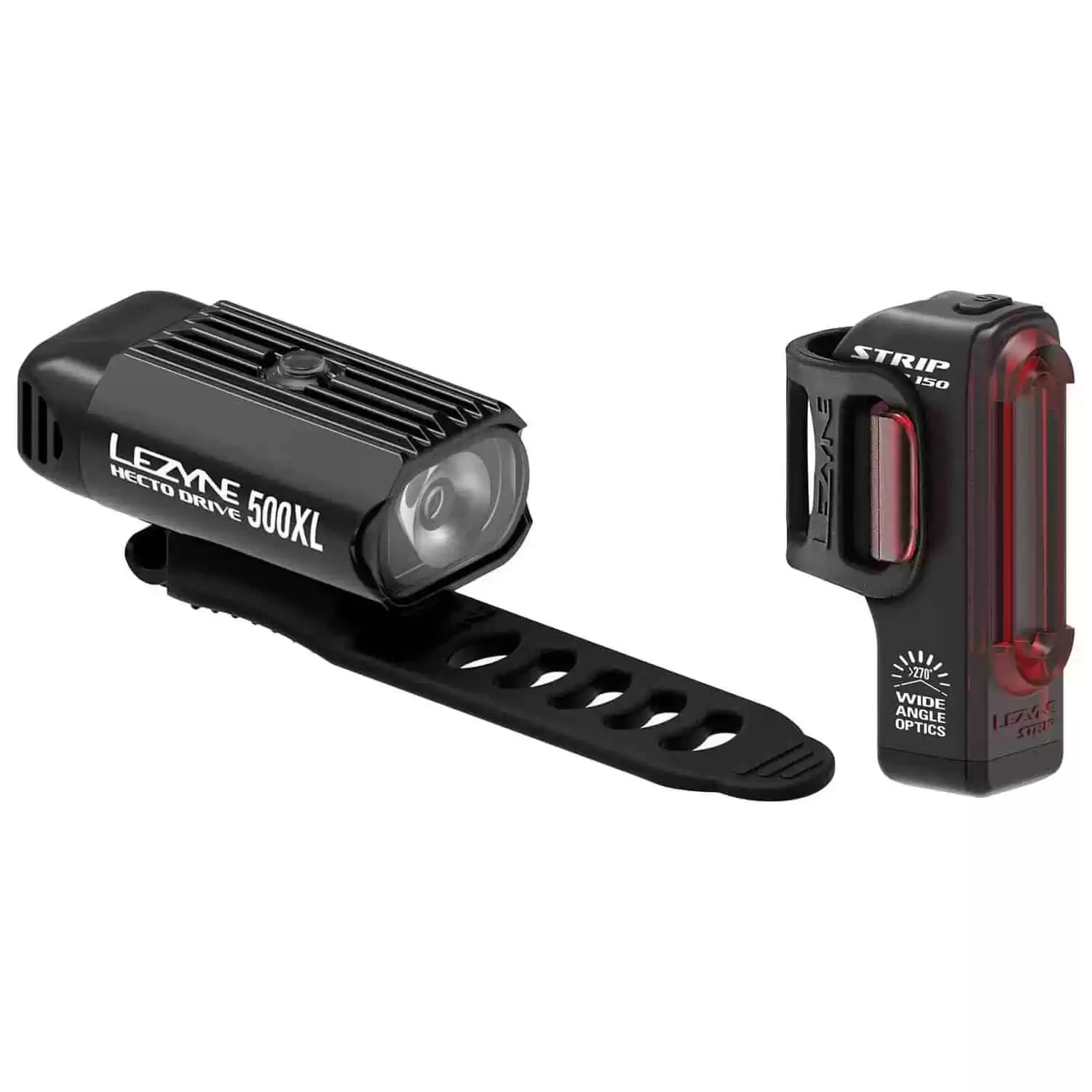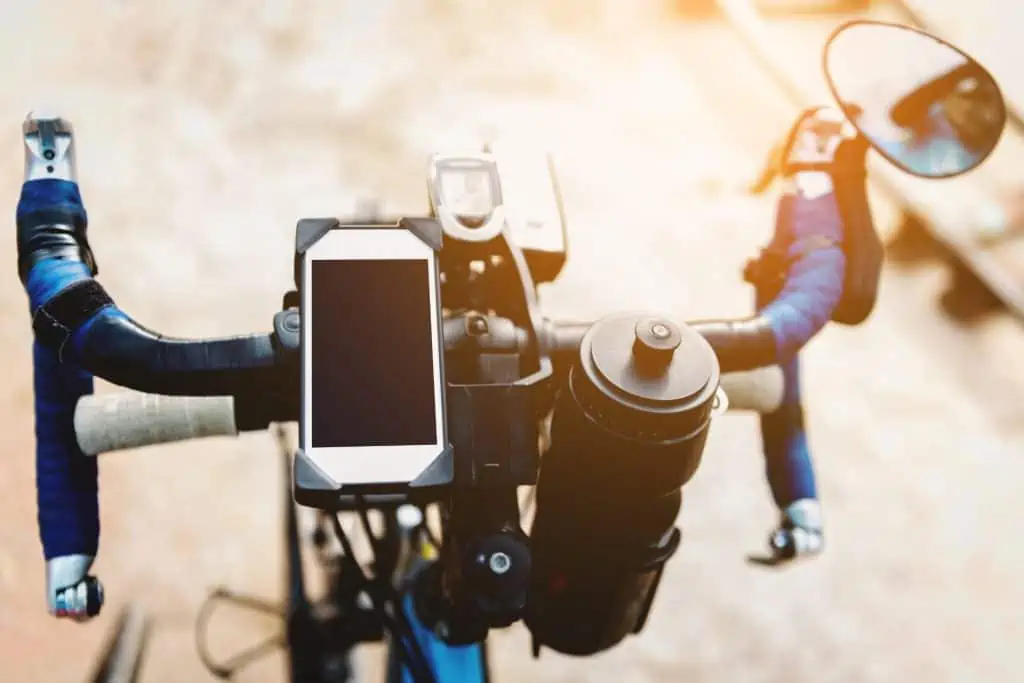When cycling after dusk or at night, one of the most important safety elements of our bike are best bike lights. They must fulfill two functions – make us visible to others and let us see where we are going and any obstacles ahead of us.
How to Choose The Best Bike Lights?
When choosing the best bike lights, it is worth looking at the quality of workmanship, reliability, shape of the light beam, as well as the type of power supply. Unfortunately, a lot of cyclists have poorly selected lighting.

Road cyclists often buy over-powered off-road lights that dazzle other road users. People who drive in the city, instead of dynamo lamps, use lamps with batteries and accumulators that discharge at the least appropriate moment.
What to pay attention to and what bicycle lighting to choose so that it fulfills its task well?
Depending on the way we ride, our expectations of a bicycle lamp change. Below I am publishing a list of things to look out for when buying the best bike lights:
Number of Lumens
Currently, off-road bike lights can have up to 3000 lumens! This is more than xenon or LED headlights of a modern car. It is therefore worth remembering not to use the full power of your lighting on public roads, and even if it is much weaker, set it appropriately low anyway.
The power of the front light for cycling around the city is a minimum of 150 lumens (optimally 300), outside the city 500 lumens, and in the field at least 800 lumens. You can go higher if you cycle in the mountains / off the grid but no need to use the full power at all times.
Shape and Angle of the Light Beam
The shape of the light beam also plays a very important role. Most battery-powered lights or rechargeable lights are designed for off-road use. Therefore, they generate a round beam of light, which is supposed to illuminate not only the path in front of us, but also all branches, hills and trees around.
As a result, they are great bicycle lights for the forest, but on the asphalt they are simply blinding. On the other hand, we have lights that are prepared for driving on the road and in the city.
They cast a rectangular shaft of light that does not dazzle drivers. The advantage of this solution is that the light beam is more focused and does not have to be so strong, because the light simply does not “escape” to the sides.
Mounting Method
The more universal the better (applies to both front and rear lamps) – you can easily put it on your bike but also use for hiking or camping. That way you don’t need to spend more money on specialized equipment.
Quality
Is the lamp resistant to falling, is the lens properly secured against falling and shattering so that it will be in use for a long time
Water Resistance
In my opinion a very important feature, even if you don’t plan to ride in the rain (you will anyway) – just look at the weather in the US right now (at the time of writing we’re struggling with extreme winter weather across the country).
Charging Methods
Built-in USB battery or batteries. Both solutions have advantages and disadvantages. I’m in for batteries (yes, I know it’s very old fashioned) because even if you don’t have electricity to recharge, you can always have a safety stock with batteries and simply replace them. Especially if you get a lamp that you can also use for hiking or camping.
Buying the best bike lights
When choosing the best bike lamps, it is worth starting with how to compare them reliably. The most reliable way to assess the brightness of a lamp is the size of the luminous flux, i.e. lumen. The brightness of lighting is also measured in lux and candela, but these values depend on the area where the light was measured and the distance from its source, which reveals a huge possibility of manipulating the real power of the lamps.
Battery-operated bicycle lighting is slowly becoming a thing of the past. Battery-operated lamps are usually heavier than those with a built-in battery, not very ecological and usually low-power. Therefore, they are usually used as lighting to mark our presence on the road, not to illuminate our way.
- Water resistant IPX 7
- Garmin style Quick release handlebar mount
- 100 Lumen
Their undeniable advantages, however, are the low price and high availability of batteries, thanks to which, if necessary, we can always replace them during a longer night route
LED bicycle lighting, powered by a battery and charged via USB, is probably the most popular segment of the market today. The advantages include: moderate prices, high power, small dimensions, easy installation on any bike and relatively low weight.
Advantages only? Well, not quite. Rechargeable lights require a charger that is easy to forget, and they also have a limited lifespan with heavy use. After a few years, the volume of the battery drops enough that the lamp (if there is no replaceable cell) is suitable for disposal.
- 500 Lumens
- 8 modes
- Max. runtime 20 hours
- Recharge time 2.5 hours
Do The Best Bike Lights Have To Be Expensive?
I do not think so. You can find good value for money. Know though that the $3 front light will give you less light than your phone. The cost of decent bicycle lighting is a minimum of $ 45 per set. This is usually accompanied by the purchase of batteries, and sometimes also a charger.
Although lamps with a built-in battery, which we charge via a USB socket, are becoming more and more popular, it is worth checking if you can charge the lamp while it is on – which is important when you want to use it, for example, while driving all night.
I know it’s a lot of money, but we don’t spend it on stupid things. With this money we buy ourselves safety. It always amazed me that we can spend huge amounts of money on gadgets. However, we save on lighting, service and other safety features.
Conclusion About The Best Bike Lights
Certainly you should not buy the cheapest bike lights. Remember that buying a set of lights for $5 will only help you avoid a fine. Maybe you will also soothe your conscience. However, you will certainly not ensure sufficient visibility. Do you have a handy flashlight at home? Buy a holder and mount it on the bike (directing the beam of light so as not to dazzle anyone).
I only have two requests. Stop making excuses not to have a lamp. When planning a purchase, aim for quality, not low price.
And remember – bike lights are for our safety and it is not worth saving on them! No need to overspend as well – between 30 and 50 USD you should be able to get good value for money.
Safety of cycling after dark or in bad weather is especially important in winter. If you’re planning to start cycling in winter, we have a series of articles about exactly this – here’s the one about cycling in winter and here’s the one about clothes you need to keep you warm.
Stay safe My Dear Cyclist Friends!







Pingback: IS IT WORTH RIDING A BIKE IN A REFLECTIVE VESTS? - inspiredcyclist